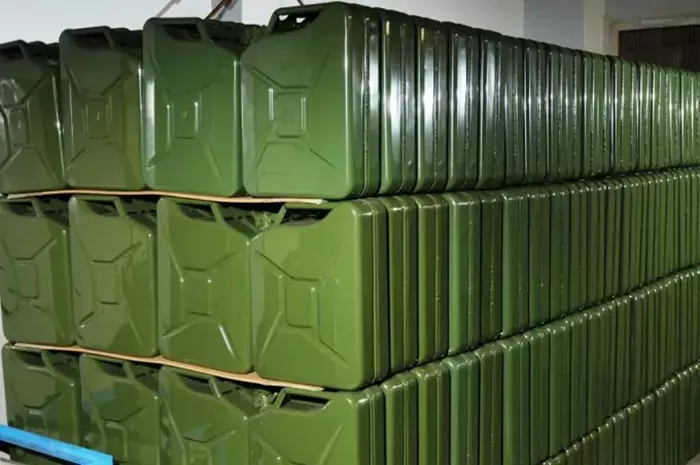Gasoline is a highly flammable and volatile fuel used in cars, generators, and other machines. Storing it safely is important to prevent accidents, spills, and contamination. There are many factors to consider, including location, container type, and safety precautions. In this article, we will discuss where you can store gasoline and the best practices for keeping it safe.
Why Proper Gasoline Storage Matters
Gasoline is dangerous if not stored correctly. It produces flammable vapors that can ignite easily. Improper storage can lead to fires, explosions, or health risks from inhaling fumes. Gasoline can also degrade over time, making it less effective. Understanding proper storage methods helps keep you safe and ensures the fuel remains usable.
Approved Containers for Gasoline Storage
You cannot store gasoline in just any container. It must be kept in approved containers made from safe materials.
Metal Gas Cans
Metal gas cans are durable and resistant to leaks. They prevent gasoline from evaporating quickly and reduce the risk of static electricity. However, they can rust if not maintained properly.
Plastic Gas Cans
Plastic gas cans are lightweight and affordable. They are designed to handle gasoline safely and often come with spill-proof spouts. However, they can degrade over time, especially if exposed to sunlight.
Jerry Cans
Jerry cans, made of metal or heavy-duty plastic, are popular for fuel storage. They have secure caps and handles for easy transportation. They are used in military and outdoor settings due to their durability.
Gasoline Storage Drums
For larger amounts of gasoline, storage drums made from high-quality steel or plastic are available. These are used in commercial or industrial settings where more fuel is needed.
Best Places to Store Gasoline
The location where you store gasoline is just as important as the container. The right place can reduce the risk of fires and leaks.
Outdoor Storage Shed
An outdoor shed is one of the best places to store gasoline. It keeps the fuel away from your house, reducing fire risks. The shed should be ventilated to prevent vapor buildup. It should also be placed in a shaded area to avoid overheating.
Detached Garage
A detached garage is another good option. Like a shed, it keeps gasoline away from living spaces. It is important to ensure the garage is well-ventilated and free from sources of ignition, such as water heaters or electrical equipment.
Underground Storage Tanks
Underground storage tanks are commonly used by businesses and farms. They provide a secure way to store large amounts of fuel. However, they require special installation and maintenance to prevent leaks into the soil.
Fuel Storage Cabinets
Fuel storage cabinets are designed for small amounts of gasoline. These metal cabinets are fire-resistant and help contain spills. They are commonly used in workshops and industrial settings.
Places to Avoid Storing Gasoline
Storing gasoline in the wrong place can be dangerous. Here are some areas to avoid:
Inside Your Home
Never store gasoline inside your house. It is highly flammable and produces toxic fumes. Even small leaks can create a serious fire hazard.
Near Heat Sources
Avoid storing gasoline near stoves, heaters, or electrical appliances. Gasoline vapors can ignite if they come into contact with a heat source or spark.
In Direct Sunlight
Gasoline should not be left in direct sunlight. Heat can cause it to expand and create pressure inside the container, increasing the risk of leaks or explosions.
In a Poorly Ventilated Area
Always store gasoline in a place with good ventilation. Vapors need to disperse safely. A confined space can allow dangerous fumes to build up, creating a fire hazard.
Gasoline Storage Safety Tips
To store gasoline safely, follow these essential tips:
Use the Right Container
Always use an approved container with a secure lid. Do not use plastic bottles, glass jars, or other household containers.
Label the Container
Clearly label the container with “Gasoline” to avoid confusion. Keep it out of reach of children and pets.
Store in a Cool, Dry Place
Keep gasoline in a shaded, cool place away from moisture. Avoid areas with extreme temperature changes.
Keep Away from Open Flames
Never smoke or use an open flame near stored gasoline. Even a small spark can cause a fire.
Limit the Amount Stored
Only store as much gasoline as you need. Large amounts increase the risk of accidents.
Check for Leaks
Regularly inspect containers for leaks or damage. Replace any damaged containers immediately.
Dispose of Old Gasoline Properly
Gasoline degrades over time. If it smells bad or looks cloudy, it should be disposed of at a hazardous waste facility. Do not pour it down the drain or into the ground.
How Long Can Gasoline Be Stored?
Gasoline does not last forever. Over time, it breaks down and becomes less effective.
Shelf Life of Gasoline
- Regular gasoline lasts about 3 to 6 months before it starts to degrade.
- Gasoline with stabilizers can last up to 2 years if stored properly.
- Ethanol-blended gasoline has a shorter shelf life because ethanol absorbs moisture from the air.
Using Fuel Stabilizers
Fuel stabilizers can extend the life of gasoline. They help prevent oxidation and keep the fuel fresh for longer periods. If you store gasoline for emergency use, adding a stabilizer is a good idea.
Transporting Gasoline Safely
If you need to transport gasoline, follow these safety guidelines:
- Use an approved fuel container.
- Secure the container upright in your vehicle to prevent spills.
- Keep windows open for ventilation.
- Avoid smoking or using electronic devices near gasoline.
- Do not leave gasoline in a hot car for long periods.
Conclusion
Storing gasoline safely is important for preventing fires, spills, and health hazards. Always use approved containers and store fuel in a well-ventilated, cool, and dry location. Avoid keeping gasoline inside your home or near heat sources. Follow safety guidelines and regularly check for leaks. By taking these precautions, you can ensure that your gasoline stays fresh and safe for use.

